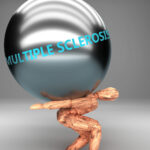Fibromyalgia is a chronic health condition that causes widespread pain throughout the body. As a disease, fibromyalgia has not always been well understood. In fact, in the past, many health professionals doubted whether the condition even existed. Such an attitude caused widespread psychological harm for sufferers, on top of the physical pain they were already experiencing.
According to the NHS, fibromyalgia can affect people of any age and gender, although it commonly occurs in those between the ages of 30 and 50 and is 7 times more likely to affect women than it is men. Scientists are yet to determine the root cause of fibromyalgia and there is no official diagnostic test, meaning that the real number of affected individuals may be far higher than estimated.
Fibromyalgia is one of the conditions which our specialist clinical team treats at MyAccess Clinics.
Fibromyalgia signs and symptoms
The signs and symptoms of fibromyalgia are often confused with other conditions. Generally speaking, patients diagnosed with the disease report widespread pain throughout their body. In addition, they may experience:
● Fatigue
● Insomnia
● Headaches
● Difficulty concentrating
● Dry eyes
● Rash and itching
● Bladder issues
● Anxiety and depression
Many practitioners refer to what are described as “regions of pain” when diagnosing fibromyalgia, suggesting that patients must have suffered severe pain in a certain number of “regions” for a prolonged period of time (more than three months) before a diagnosis can be made. They may also adopt the approach of ruling out other similar conditions, including arthritis, chronic fatigue, irritable bowel syndrome, and multiple sclerosis, before confirming a case of fibromyalgia.
Treatment and therapies
Unfortunately, there is currently no cure for fibromyalgia. Current treatment and therapies focus on relieving the symptoms and reducing pain and usually involve a combination of medication and lifestyle changes.
Your general practitioner may recommend that you visit a number of other medical specialists, including a rheumatologist, neurologist, and psychologist, to treat individual symptoms. They will likely prescribe some form of painkiller medication and potentially antidepressants.
In addition to these treatment options, certain lifestyle changes may help manage symptoms. Eating a healthy diet, engaging in a reasonable level of exercise, and finding time to wind down through yoga and similar meditative practices may be of assistance.
Unfortunately, for some people diagnosed with fibromyalgia, these strategies provide limited relief from pain. These patients may benefit from cannabis treatment for fibromyalgia.
Medical cannabis and fibromyalgia
In 2018, the United Kingdom legalised unlicensed medical cannabis products, meaning the prescription medication was now available to a wider number of patients, including those diagnosed with arthritis, lower back pain, neuropathic pain, and fibromyalgia.
Medical cannabis is derived from the cannabis plant, which contains hundreds of different cannabinoids (chemical substances). Amongst those cannabinoids are delta-9-tetrahydrocannabinol (THC) and cannabidiol (CBD), two cannabinoids which are commonly found in medical cannabis. These cannabinoids act on the endocannabinoid system, a widespread system that controls many functions relating to our nervous system.
Fibromyalgia’s complex nature means it is difficult to determine a root cause for the condition. Researchers suggest that abnormal pain messages from the brain, chemical imbalances, genetics, and psychological stress can all play a role. It has also been proposed that a deficiency in endocannabinoid levels (also known as Endocannabinoid Deficiency Syndrome) may be a contributing factor. Medical cannabis, which interacts with the endocannabinoid system, may help manage the frequency and severity of symptoms.
MyAccess Clinics — a leading medical cannabis clinic
MyAccess Clinics team of medical cannabis specialists have helped patients all throughout the UK manage chronic and psychological health conditions, including fibromyalgia.
We work with our patients to determine whether medical cannabis for fibromyalgia is the right treatment strategy for their concerns. This process involves considering past treatment and therapies that you may have tried and what effect they have had in treating symptoms. Your specialist will also take into account any other pre-existing health concerns you might have that may be affected by prescription medical cannabis.
If it’s decided that medical cannabis treatment for fibromyalgia is the right pathway for you, your specialist will be able to advise you on your starting dose, any side-effects to be aware of, and where to fill your prescription.
For further advice, contact the team at MyAccess Clinics today.





